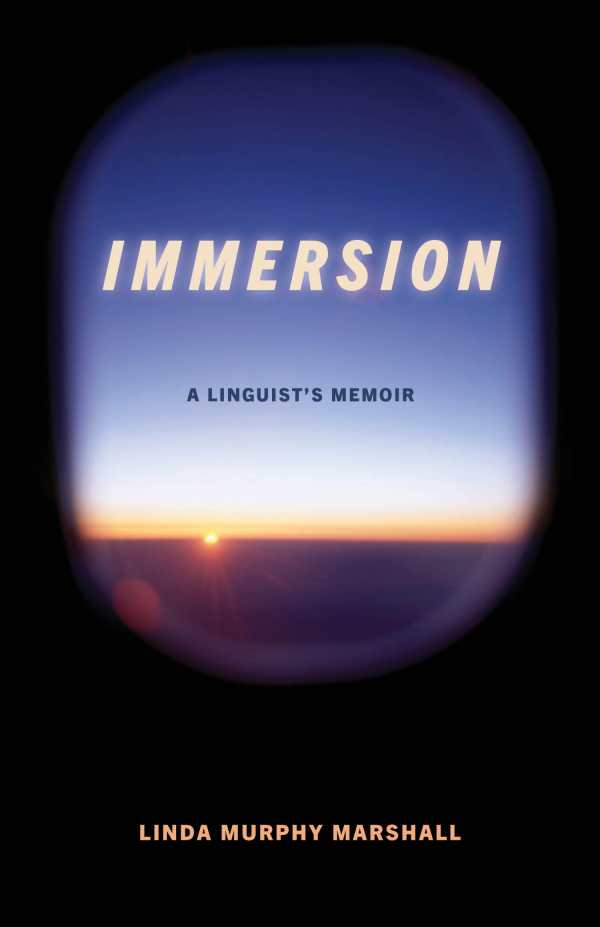Immersion
A Linguist's Memoir
About how learning new languages transformed her mindset and exposed her to new cultures, Immersion is Linda Murphy Marshall’s affecting memoir.
Celebrating self-expression against a backdrop of increasing globalization, Linda Murphy Marshall’s memoir Immersion is about professional life, personal growth, and finding a core identity in languages.
After a Midwestern upbringing in a traditional household, Marshall was expected to get married, have children, and work in the home. Instead, she went to college, where she spent a semester abroad in Spain. There, she witnessed the costs of suppressing dialectal differences between governments and their people. Inspired, she attained fluency in multiple tongues—including Portuguese, Xhosa, and Swahili—and pursued a PhD. She began her career in the Midwest, doing translating work in a government office. Later, she pivoted to government work, serving in a US embassy and relocating to Washington, DC, where she was exposed to national security concerns and postcolonial conflicts in African nations, including Tanzania, South Africa, and Ethiopia.
Marshall’s work abroad is covered in loose chronological order; the book’s focus is more on illustrating how learning new languages challenges one’s views of the world and oneself than it is on the particulars of her travels. Its pages convey the tenacity and understanding that it takes to learn a language and understand its cultural context, while also reflecting that “language keeps leading me where I don’t want to go but need to.” As a result, though, the descriptions of the places, people, and settings she encountered are relegated to the book’s backdrop, handled in a rapid-fire and impressionistic manner to the extent that some of the places mentioned blend together. Further, the book’s details of the work that Marshall did with the embassy are kept vague for security reasons, leading to gaps.
More distinctive are the book’s engaging accounts of Marshall’s interactions with language instructors and host families. Further, its scenes of military-related dangers are tense. In these down-to-earth, human moments, the book ably imparts a sense of the universality of the human condition, capturing feelings like grief and gratitude in time with Marshall’s poignant, ongoing search for her sense of self. The more she learned, the more secure she became, including in her burgeoning feminism and sense of personal power.
Languages open up opportunities, according to the memoir Immersion, which is about staying true to one’s authentic identity.
Reviewed by
Sterling Hooker
Disclosure: This article is not an endorsement, but a review. The publisher of this book provided free copies of the book and paid a small fee to have their book reviewed by a professional reviewer. Foreword Reviews and Clarion Reviews make no guarantee that the publisher will receive a positive review. Foreword Magazine, Inc. is disclosing this in accordance with the Federal Trade Commission’s 16 CFR, Part 255.

